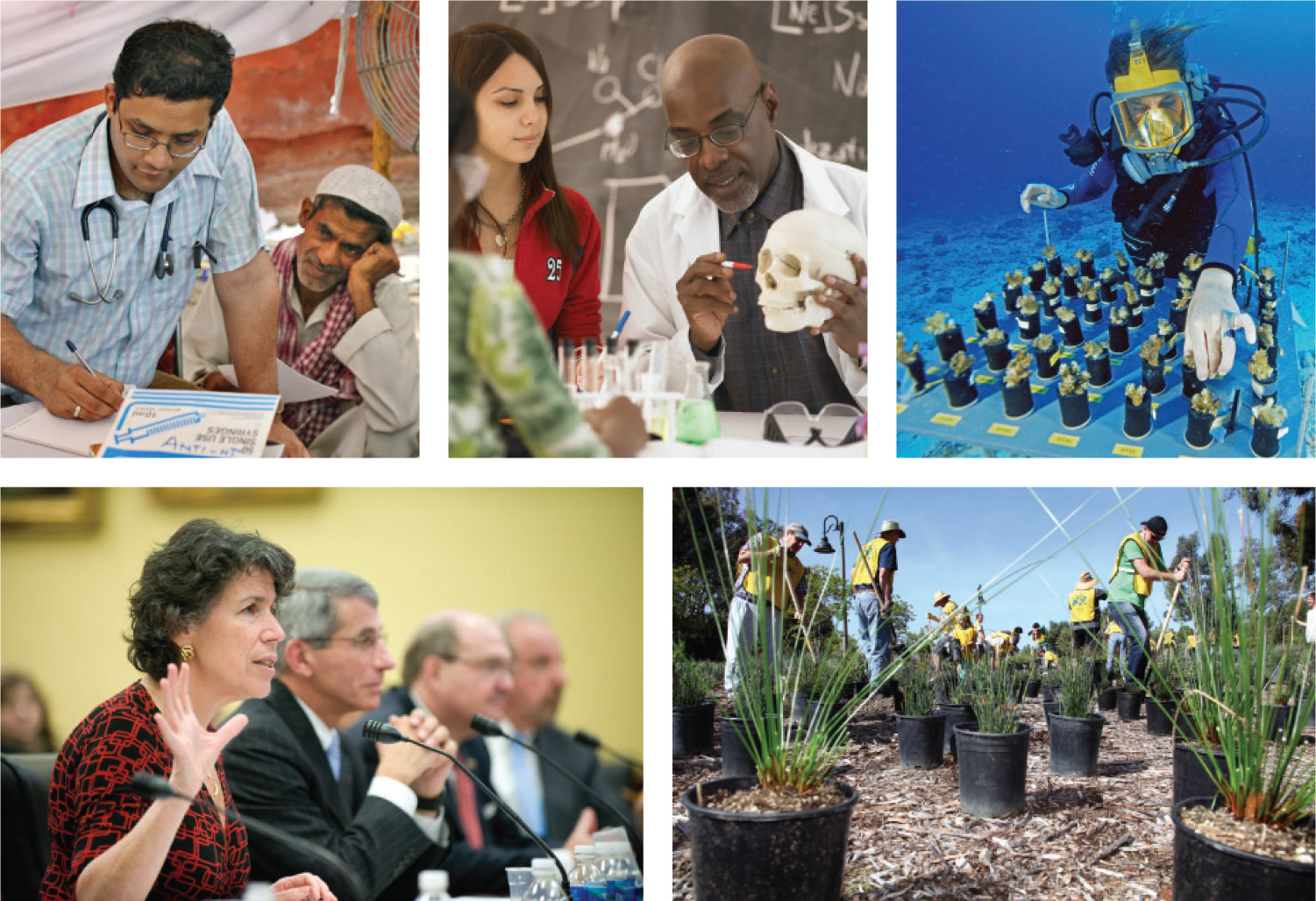48.5 SCIENTISTS AND CITIZENS IN THE 21st CENTURY
The decades ahead will be a time of great opportunity, but they will also present increasing challenges as the human footprint continues to grow around the world. How we will meet those challenges is, in large measure, up to you.
If you become a biologist, you will be able to help improve our planet’s health in many different ways (Fig. 48.23). Field biologists are needed to document Earth’s true biological diversity, even as much of it comes under threat. Physiologists are needed to understand how species respond to environmental change. And ecologists and population geneticists are needed to discover the principles that govern species interactions in communities, so that we can understand how physiological responses to global change in one species will affect the fortunes of others. Only then will we be able to design effective ways to preserve the world’s biodiversity. Molecular biologists will help us to combat disease in new ways, and geneticists will develop crops that yield more food, even as temperature and rainfall patterns change. Perhaps most important, biologists will work with economists, lawmakers, and others to ensure that government policies reflect what we know about the natural world on which we all depend.

If you become a doctor, you will have many opportunities to improve the health of people in countries around the world (Fig. 48.23). Through laboratory research physicians will discover new ways to treat cancer, malaria, HIV, and a host of other diseases. And by treating patients in new ways, doctors will reduce the threat of antibiotic-resistant pathogens. Working with government and private agencies, doctors will help to ensure clean water and adequate food for people in parts of Africa, Asia, and wherever else the basic needs of life pose an ongoing challenge.
If you become a teacher, you will have a particularly important role in making sure that our children have the knowledge they need to meet the challenges of life in the Anthropocene Period (Fig. 48.23). And, perhaps most important, by choosing to be a responsible citizen, you can help to ensure that your family, your workplace, and your government make wise choices. As individuals, we all have a responsibility to make wise choices in our lives, and in an age of environmental change, knowledge of Earth and life provides a key framework for personal choice. As citizens, our votes shape governments, and biological education can help to ensure wise leadership.
We cannot change the world we’ve been given, but we can and will influence the one our children inherit. It is easy to despair about the future, but as the novelist Philip Pullman put it, “Hope is not the name of a temperament, or of an emotion, but of a virtue.” Hope inspires action, and our collective capacity for positive change is great. Knowledge of biology will not by itself ensure that humanity’s golden age can be sustained in coming years, but it will surely be an important part of our solutions.